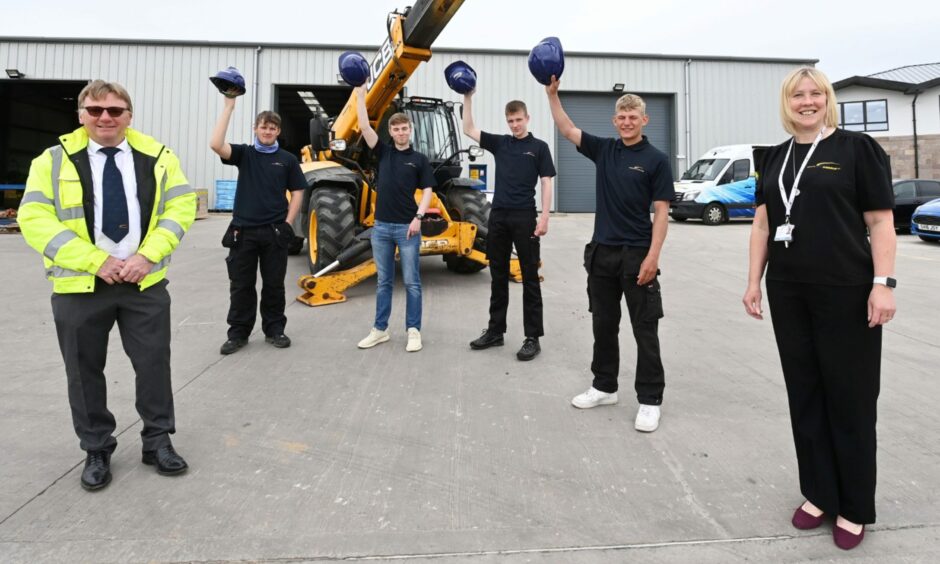After several false dawns and despite a new wave of the Covid “delta” variant, we are finally returning to something resembling business as usual.
But our usual business practices won’t be adequate to drive the biggest challenge in economic reconstruction this country has faced since the end of the Second World War.
For that, we need to upgrade our entire business model, prioritising training and development.
But we won’t be starting from scratch. Long before Covid struck, the downturn in the offshore oil and gas industry provided a wake-up call to the north-east about the need to not only diversify our economy but also reskill workforces.
Back in 2016, Skills Development Scotland (SDS) began helping oil workers retrain for other occupations. But there has also been a drive to reskill them for green energy jobs since a survey by Scottish Renewables found three-quarters of oil workers were happy to transfer their existing skills.
The Scottish Government’s £100 million Green Jobs Fund will help that transition. As will the recently announced plans to establish the National Energy Skills Accelerator.
It will play a role as part of the Energy Transition Zone in Aberdeen, equipping workers with the skills they and the region needs.
But it’s not just energy workers that need retraining. Nine out of 10 workers will require some degree of reskilling by 2030 and one in six will experience a radical change of employment, necessitating retraining. Across all industries, one crucial area urgently requires development – technology and digital skills. Here, there are grounds for concern.
In Scotland, only 50% of business leaders say they plan to address gaps in skills over the next year, while 33% of those surveyed said digital adoption was too expensive and time-consuming – slightly above the UK average of 30%.
One-fifth of SMEs have failed to embrace new technology
Although 81% of larger firms have accelerated digitalisation plans during the pandemic lockdowns, only 20% of small to medium-sized enterprises (SMEs) adopted new digital technologies.
SMEs are the core motor of the economy. They must be encouraged to embrace technological innovation, which could make the difference between success and failure.
For that, they will need help and the necessary support systems will require funding, such as that provided by the government’s £20m investment in the DigitalBoost Development Grant.
North-east businesses are well served by institutions contributing to training and development. Under the leadership of Opportunity North East (One), Aberdeen University, Robert Gordon University and North East Scotland College, together with SDS, Code Clan and The Data Lab, have created the Future Skills Partnership to boost the region’s digital capabilities.
One Tech Hub, on Schoolhill, Aberdeen, provides a cluster for technologically innovative entrepreneurs to develop digitalisation and associated skills. One is also leading a number of transformational projects, including SeedPod – focused on the food and drink industry – and BioHub, concentrating on life sciences, in growth sectors across the region, providing essential support programmes for businesses.
SMEs are the core motor of the economy. They must be encouraged to embrace technological innovation.”
One is also helping developments within the catering sector, being the majority funder of the Hospitality Apprenticeship North East programme, providing professional training for the crucial and hard-hit hospitality industry.
Across many industries, the re-energising and expansion of apprenticeships is an urgent requirement.
Civil engineering and construction firm WM Donald – based in Netherley, near Stonehaven – recently launched an in-house apprenticeship scheme, taking on 12 apprentices, with the ambition eventually of expanding this initiative into an industry-wide scheme for the north-east.
There are apprenticeships available in Scotland for around 1,500 different types of jobs, ranging from software development to boatbuilding.
For centuries apprenticeship was the path to employment in a trade or profession; in the digital age it is re-energised. On the eve of the pandemic, there were more than 37,000 people in apprenticeship jobs in Scotland. The challenge now is to expand that base.
‘Reskilling must become an ongoing process’
The pandemic has highlighted something that innovative entrepreneurs were already addressing before the outbreak – everyone in business, from the boardroom to shop floor, needs to go back to school.
Reskilling must become an ongoing process, with workers’ skill sets constantly refreshed throughout their careers. Training and development are the keys to a future of restored prosperity.
Martin Gilbert is a co-founder and former chief executive of Aberdeen Asset Management.
Martin Gilbert acquires stake in former AAM firm Parmenion, just months after Standard Life sold it














